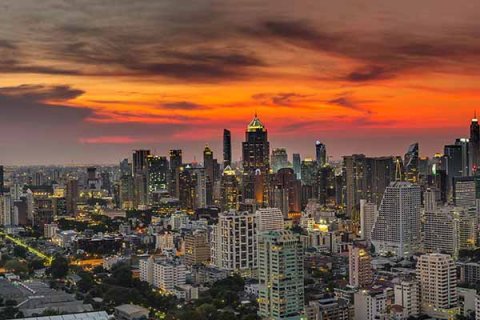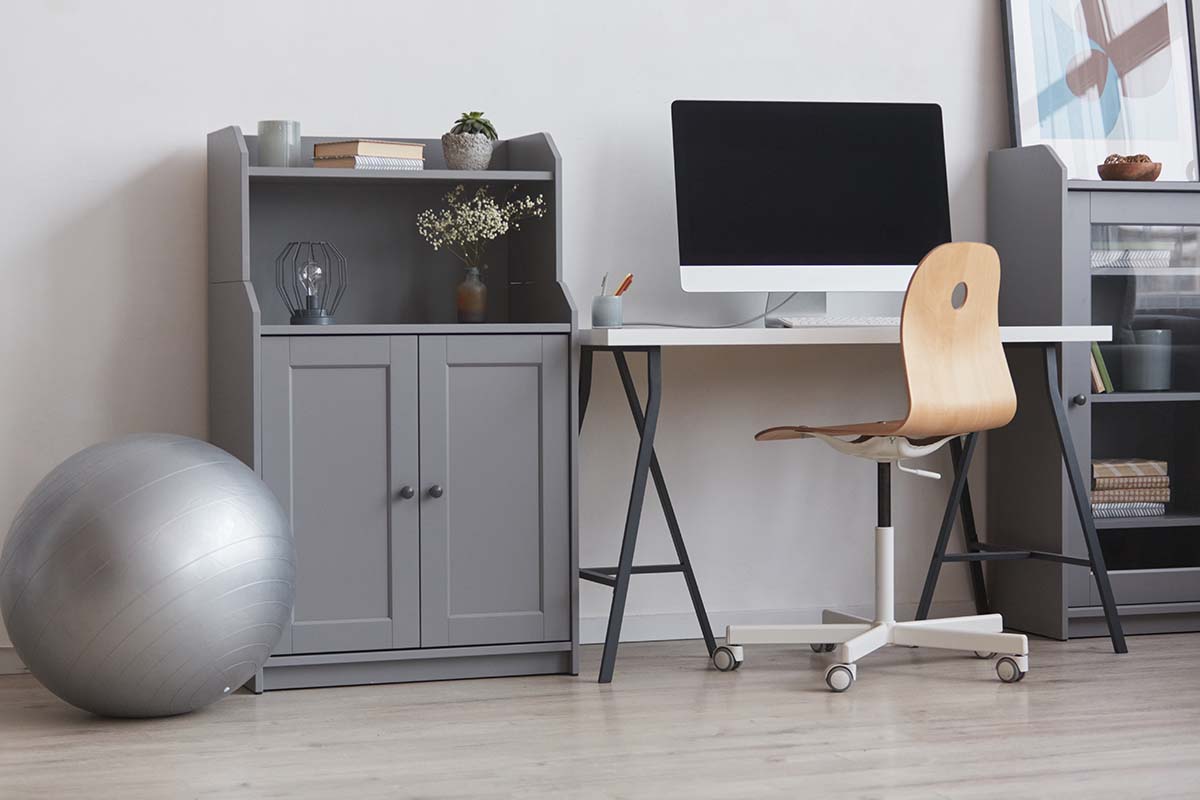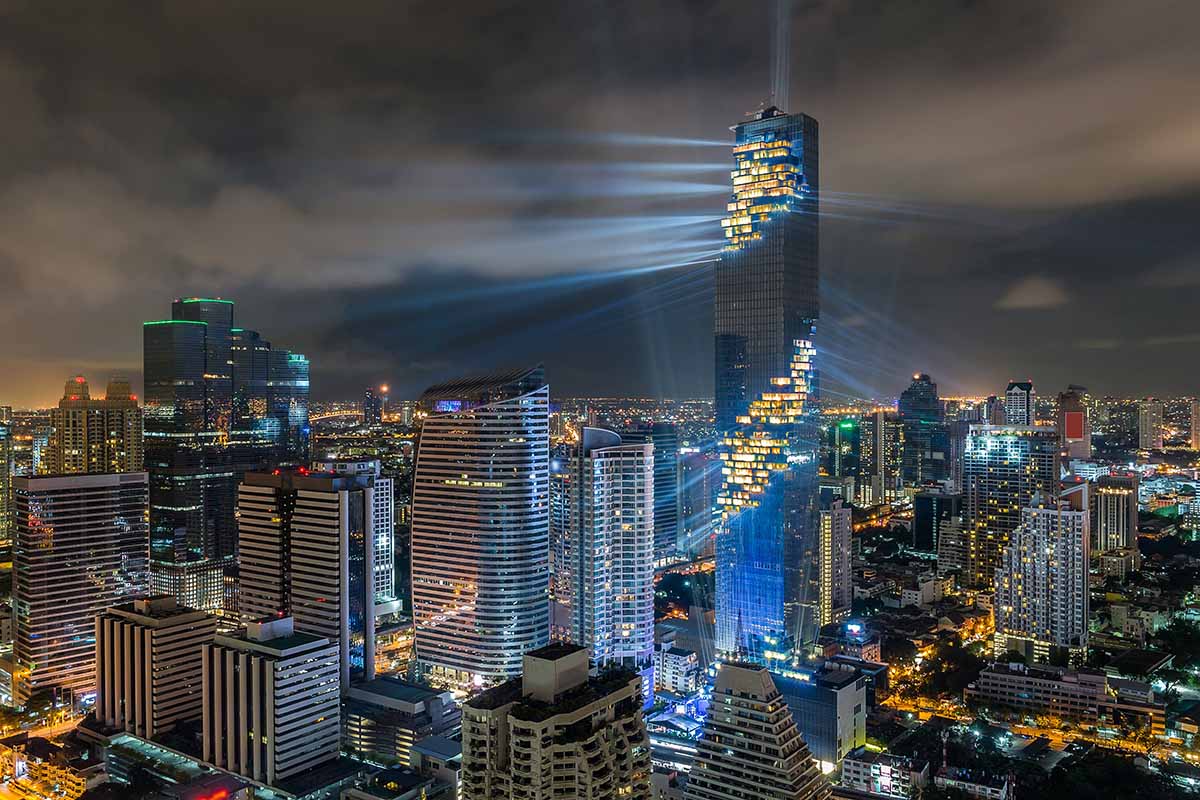
Many of those who are thinking about migrating to warmer countries are planning to buy real estate in Thailand. The sun, sea, tropical climate, culture, and affordable housing prices are tempting arguments in favor of moving. However, they are not sufficient to make a decision.
We offer you to explore life in Thailand and learn more about the main aspects of moving to this country on real examples.
Content:
- Main facts about Thailand
- 6 reasons to move to Thailand
- Features of immigration to Thailand
- Visas to Thailand
- Tourist visa
- Nonimmigrant visa
- 1-year nonimmigrant visa
- Marriage visa
- Pension visa
- Business visa
- Permanent resident visa
- Student visa
- How do emigrants live in Thailand?
- Cost of living in Thailand
- Expat reviews
- We will help you purchase real estate in Thailand
Main facts about Thailand
- The Kingdom of Thailand is located on the shores of the Gulf of Thailand in SoutheastAsia.
- It is the 20th most populous country in the world. According to Country Meters, its population as of May 2023 is 70,599,169. The average life expectancy is 74 years.
- Tourism and services are important components of the country's economy and many expats live in Thailand. In 2021, 20,105 people migrated to Thailand.
- Languages: Thai and English. Most service workers are fluent in English.
- Religions: Buddhism (93.2%), Islam (5.5%), and Christianity (0.9%).
- Predominant ethnic groups: Thai (75%), Chinese (14%), other ethnic groups (11%).

6 reasons to move to Thailand
Despite the relatively homogeneous culture, there is a diversity of communities and lifestyles in the country. Central Thailand includes Bangkok, the capital and largest city, Europeanized and technologically advanced, it will be similar for those who are used to living in a metropolis. However, other areas of the country, including the north, northeast (called Isaan), and south (near the border with Malaysia), are different from central Thailand and each other. Traditions and religion prevail there.
In Thailand, everyone will find something close in spirit for themselves. In addition to the rich cultural component, foreigners often note the 6 advantages which most often become additional incentives for moving to this country.
Advantages of Thailand:
- There are large expat communities in different parts of the country. They support each other and newcomers through newsletters, informal meetings, etc.
- There are 102 national parks in the country, including 21 marine parks and many picturesque beaches.
- Thailand remains a very affordable place to live especially if an expat chooses a Thai lifestyle. Thai food is inexpensive, delicious, and world-famous.
- Affordable housing. The real estate sector is recovering from the crisis and falling prices of 2019–2020 so the cost of housing is low in some sectors.
- High level of medical care.
- Sea and sun.
Disadvantages of Thailand
To understand what Thailand is, it is necessary to talk about the advantages, but it is important to bear in mind the shortcomings, including:
- Rigid tariff system. Local food and groceries are affordable, but expatriates, who prefer to eat Western food, not in a Thai restaurant, need to be prepared for prices. Some European dishes can cost up to ฿320 ($9,4), a pizza in a cafe costs from ฿150 to ฿300 ($4.4 to $8.8), cappuccino is ฿90 ($2.7). Many visitors cook at home – it is much cheaper. Local fruits (including such exotic fruits as durian, mangosteen, and rambutan) cost little more than apples and pears in other countries. But imported goods are 2–3 times more expensive.
- Thai bureaucracy. It certainly exists, but it is not connected with going to the offices, collecting signatures, and bribery, but with a leisurely lifestyle and a Buddhist Thai mentality, processes that take several days can last for weeks.
- It is difficult for foreigners to make friends among Thais as many of them are closed and reserved.
- The hot season lasts from March to June. During this period, the air temperature reaches 40 C. It is hard to be outside during the day for more than 5 minutes, and at home, there is only air conditioning.
- Rainy season. The duration may vary depending on the area. In Bangkok for example, the rainy season lasts from September to November, and in Pattaya from September to October. Rains are rarely long, but there are frequent showers here. The main disadvantage is high humidity. There are also floods but not everywhere.
Features of immigration to Thailand
The most comfortable conditions for visiting Thailand are created for foreign nationals. They do not need a visa for a short-term (up to 30 days) visit to the Kingdom.
After 30 days, the visa can be extended for another 7 days at the immigration center, while paying a stamp duty of 1,900 baht ($56) plus 500 baht ($14.7) of internal fees.
Important! To date, all COVID restrictions in Thailand have been lifted, so the presence of compulsory health insurance, Thai Pass and PCR test is not required.
Note: in some cases, the airport may ask you for your return ticket, hotel reservation, and $700. Therefore, it is better to play it safe and protect yourself from deportation.
Upon arrival in the country, your passport is stamped upon entry. Residents of Kazakhstan and Ukraine can stay in the country without a visa for no more than 30 days. However, this option is not suitable for a long-term stay.
What types of visas are there?

Visas to Thailand
According to the information on the official website of the Immigration Office of Thailand (Immigration Bureau), a foreign national wishing to enter the Kingdom of Thailand must obtain a visa at the Embassy of the Kingdom of Thailand or the Consulate General of Thailand (except for the aforementioned countries).
Tourist visa
It is issued for 60 days with a 30-day extension. You cannot work with it but you can holiday.
Nonimmigrant visa
This is usually a single-entry visa to Thailand valid for 90 days. As with a tourist visa, you can extend your stay by applying for a visa at the border or in a nearby city/country. It is possible to obtain a work permit and open a bank account.
1-year nonimmigrant visa
This visa is multiple-entry and valid for visiting Thailand for 1 year. However, to update it, you will have to cross the border every 90 days and get a visa at the immigration center.
Marriage visa
This is a common name for "annual visa extension based on marriage." It is a long-term visa issued to foreigners married to a Thai citizen.
Requirements for a Thai Marriage Visa:
- Confirmation of marriage with a Thai citizen;
- Financial compliance – a deposit of ฿400,000 in a Thai bank account deposited no later than 2 months before applying for a visa;
- Monthly income of ฿40,000 or more.
Important! The visa allows a stay in the Kingdom for 12 months with an extension and work in the country. It allows you to legally move to Thailand and work in the country after obtaining a special work permit.
Pension visa
It is issued to citizens over the age of 50. There are 2 options for pension visas:
- Category O-A allows a stay in the country for 12 months;
- Category O-X allows a stay in the country for 10 years.
The main differences in the conditions for obtaining these visas are the minimum income criteria:
- O-A – the income of $2,000 and a deposit in a Thai bank account of $25,000;
- O-X – the financial threshold is $100,000. The amount can be deposited in whole or in part – $60,000 as a deposit and $40,000 as confirmed income.
In addition, it is necessary to meet the general requirements:
- The age of the applicant is 50 years or more;
- No criminal record;
- No prohibited diseases.
Important! The visa does not permit work in Thailand.
Business visa
This visa is designed for people who want to do business legally in Thailand. It is also known as a non-immigrant business visa. You can get a work permit and open a bank account but you still need to renew your visa every 90 days.
Permanent resident visa
To qualify for this visa and legally move to Thailand, you must have been in the kingdom for 3 years. If you have been married to a Thai for 5 years, you should earn ฿30,000 ($896) per month. The income of single expats should be ฿80,000 ($2,400) or more. To obtain a long-term resident visa, you need to submit a three-year tax return confirming the above income requirements.
Student visa
It is issued for schoolchildren and students who plan to study at international educational institutions in Thailand. After that, a foreigner is issued a three-month residence permit in Thailand. Then the educational institution extends the visa for 1 year, after which the visa can be extended for another year and so on until the end of the education.
How do emigrants live in Thailand?
Most foreigners call Thailand "one of the best places for expats." The advantages are the low cost of living, incredible culture, and delicious food. Even during a difficult epidemiological period, Thailand receives thousands of visitors every day. According to the Tourism Authority of Thailand (TAT), over 600,000 foreign tourists visited the kingdom from January 1 to April 10, 2023.
What are foreigners doing here? They rest, work, and study. Some work remotely and combine business with pleasure, some work and raise children, and some retire. Entrepreneurs and investors come here to launch and develop their businesses.

Cost of living in Thailand
The average cost of living in the kingdom per person by May 2023 was 19,172 baht ($564) per month, excluding renting an apartment in Thailand. This figure may vary depending on the city and your personal needs. At the same time, the minimum wage officially established in Thailand is THB 6,200 ($182.2).
Below are the main items of expenses of foreigners for living in Thailand and their cost:
- Housing rental – $350;
- Public utilities – $30;
- Cleaning – $15;
- Food – $190;
- Transport (fuel) - $100;
- Entertainment – $65.
Expat reviews
Alex Brown
I'm a travel fan. I have traveled almost all over the world but, in the end, I settled in Thailand and have been living here for 5 years. I live and work in Bangkok. I love Thai cuisine. I don't like noisy events but I am delighted to visit local festivals. There’s always something interesting here so I immerse myself in the Thai flavor with great pleasure.
If you are a researcher and like to discover something new, Thailand is the place to add to your tourist list. As for moving, everything is individual. You have to try it, in other words, "try on" the local flavor and understand whether it suits you or not.
Lana Peters
I moved to Thailand from the UK. I've visited a few times before and realized everything is perfect for me, and I think I can improve my life quality by moving.
The weather was also a major factor in my decision to choose Thailand. I cope well with hot weather and I always get depressed during the British winter. So I'm hoping almost double the number of sunshine hours will help me with this. Food is another important element – I love Thai food especially various vegetables and how cheap it is!
Moreover, I find it interesting to visit small Thai cities and feel their atmosphere but there is usually nothing to do. However, there are beaches and housing is near the sea (within 5-30 km). There are many such places in Southern Thailand like Ao Ang. Tourists rarely go there but that's what I like. You can be alone here.
We will help you purchase real estate in Thailand
Are you planning to buy a house in Thailand? The catalog on Thailand-Real.Estate contains various offers from proven homeowners and developers in well-known locations in Thailand.
Find an apartment or villa on your own by dozens of parameters or ask a Thai real estate specialist for help. Experts will provide you with information, answer your questions, and help you make a secure transaction.
